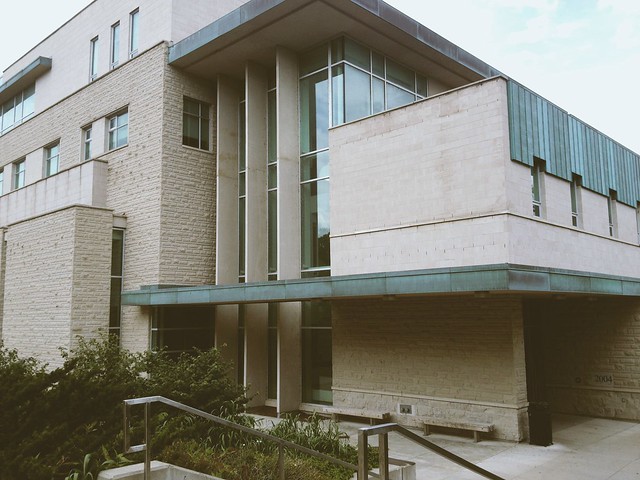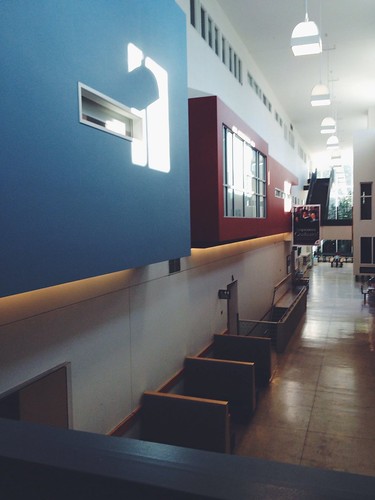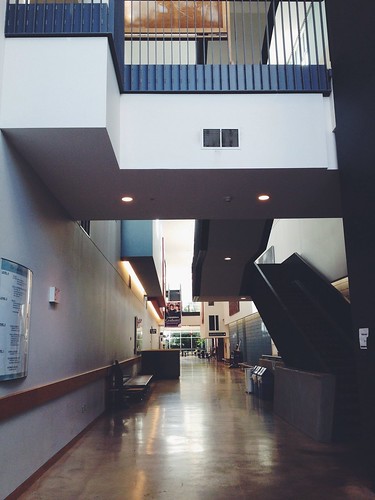
This post has been building in my head for almost two years now - longer than I've actually had this blog. And since my time in the MLIS program has now come to a close, I figured now is the best time to put it all down in print. The MLIS program at the University of Western Ontario has generated a lot of thoughts over the past two years, a lot of discussion between friends - and a lot rants, too. I've truly enjoyed my time in the program and earning my degree. My thoughts on the good and the bad parts of the program are under the cut.
First of all, the MLIS program at UWO can be done in one calendar year. That is pretty damn excellent, especially for people that are transitioning from being a paraprofessional tech into the world of professional librarianship. Whether you have a job waiting for you or you've firmly built a family life in another city, having a one-year program can certainly help. It doesn't have to be done in 1 year of course - I took 2! - but it's certainly an appeal that I've heard mentioned by a great many of my classmates.
The short time, however, also means that there's not a whole lot of time to figure out your path in librarianship. When I began the program, I was open to all kinds of librarianship (public, academic, and special - reference, cataloguing, and so on) but the 9 credits allowed outside of the 6 required courses meant that you have to choose wisely. Now, the program is undergoing some changes and there's only 5 required courses now which frees up an extra elective - but still, choose wisely. This can lead to a bit of regret. For example, as much as I love and appreciate archives - and even though I gained some valuable insight into that field of work - I do regret taking my Archives Administration course. It's great if that's what you're into, but I wasn't and I knew I wasn't when I was signing up for it. By the time I began my last term in the program, I was seriously regretting using up an elective on that course when I could've been taking something else.
Speaking of courses, I've found that there can be a lot of overlap between elective courses and the required courses. This isn't necessarily a bad thing, of course - when you think about it, those required courses are supposed to be giving you the basis of materials and knowledge for moving ahead in the profession. But, I'll admit, it can get grating sometimes when you're taking four different courses in a semester that all cover some the same data collection information you learned about in the required statistics course. It's important information, sure, but I wish instructors would put a better spin on the material and have it focused a bit more on that specific course. Like I said, it's frustrating to show up to 3 of 4 classes in a week that all present the same material about how to construct a proper user survey.


Some more about courses: talk with your classmates about them. Talk to people that may be a term or two ahead and get their opinions about courses - talk to anyone you trust or think could help you. And then make the choice that's right for you and your future career. I say this because, sometimes, the course descriptions posted on the FIMS website aren't always accurate. They always seemed to me to have been written 2-3 years ago - or worse, 2-3 instructors ago - and don't always give the most accurate representation about what would be covered in a class. Case in point: I took Information Retrieval in the summer 2012 semester and loved it - it was in-depth web information presented with lab time and assignments that were clearly tied to the subject matter. Flash forward to the summer 2013 semester: the usual instructor is on some kind of sabbatical leave, and a friend tells me that the course structure and content has completely changed - it's more theoretical than practical and hands-on, and the assignments are reflection papers rather than lab-work. And nothing in the course outline that was provided to students had changed when they were selecting that course. That's frustrating, to say the least.
Other thoughts: take advantage of the co-op program. For the love of all things good in this world - puppies! rainbows! books! - take advantage of the co-op program. Competition seems to be getting heavier as organizational budgets get lighter, but it will help you in the long run, I swear. Practical experience in a library setting will always outweigh none. I have to believe that. If you can't commit to the co-op program for whatever reason, apply for external internships and get involved in student groups. Student groups will get you networking access to professionals and will allow you to build leadership/marketing/budgeting skills that can translate in a job interview. Do it.
Lastly, know that 99% of the time there are people there that genuinely want to help you succeed. Get résumé help if you need/want it. Attend those information sessions about music librarianship, or publishing in libraries, or whatever other great guest lineup the Graduate Resource Centre has on call. Take in all the information you can handle to prepare yourself for the professional world. Relax and vent with your friends as much as possible - they want to see you succeed as much as you want to see them succeed. I promise it will be worth it.
So now I'll open it up to you, readers. Is there anything about your library school program that you loved or hated? Things you wished you had done when you were there?

No comments:
Post a Comment